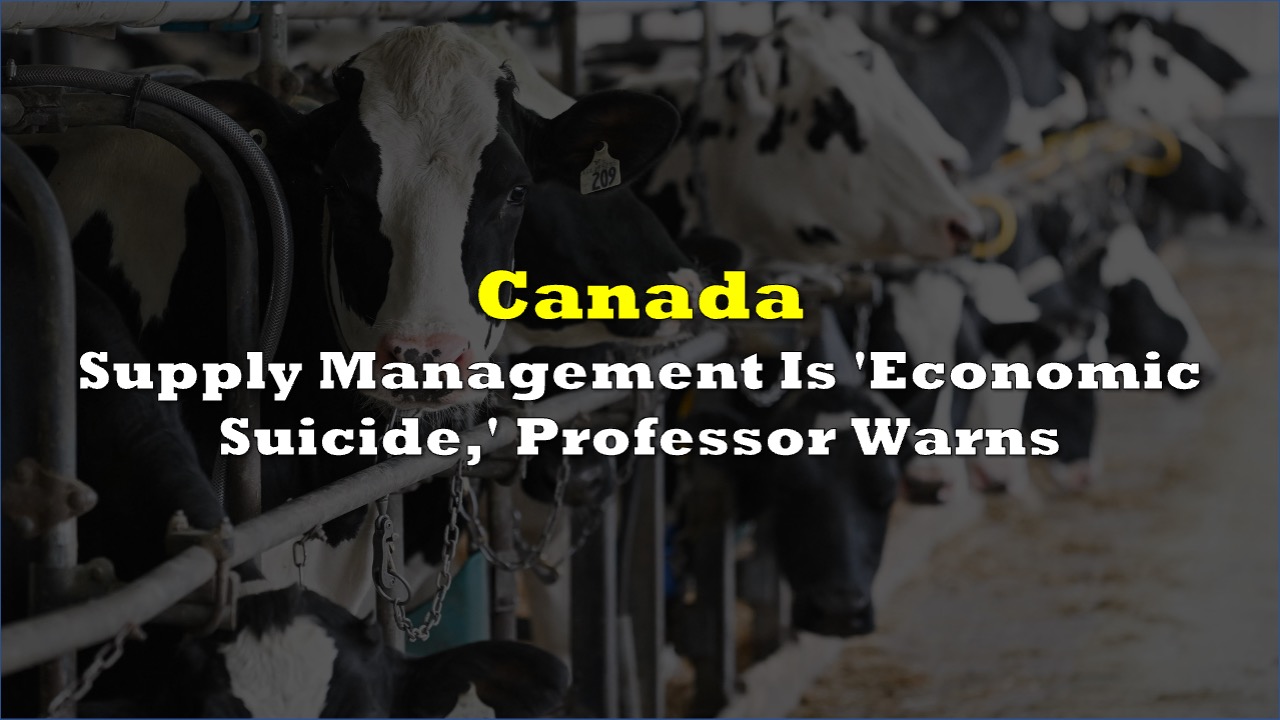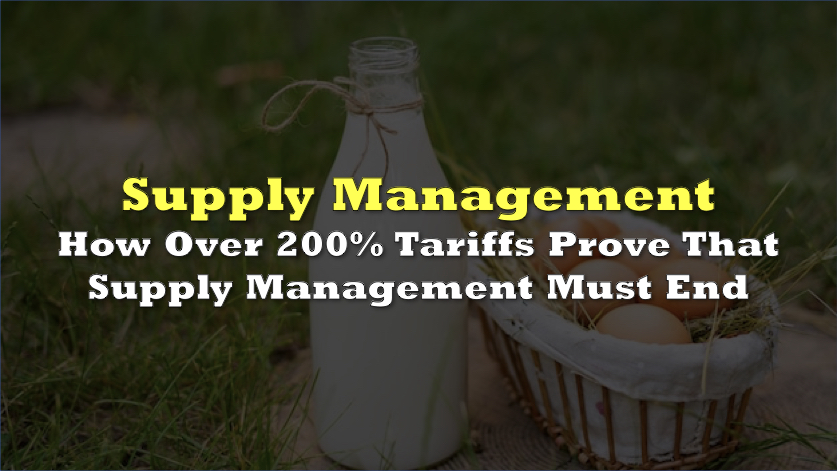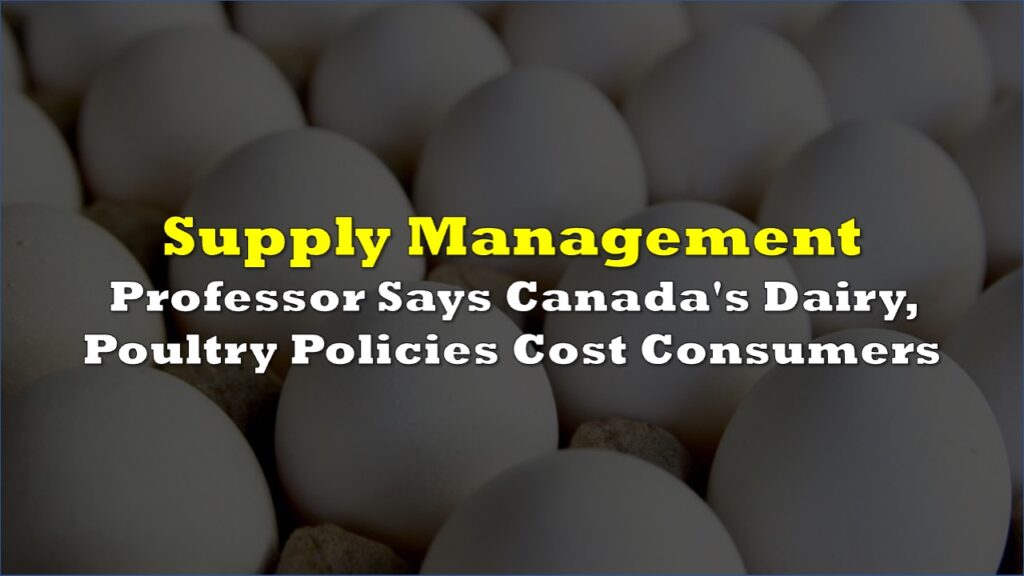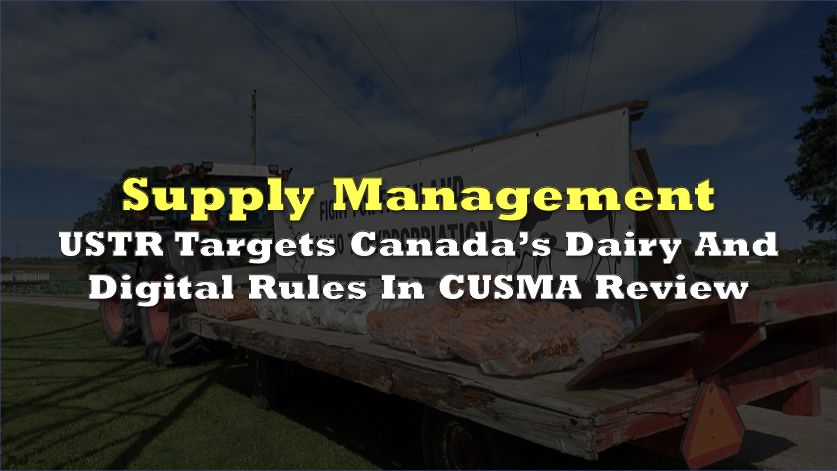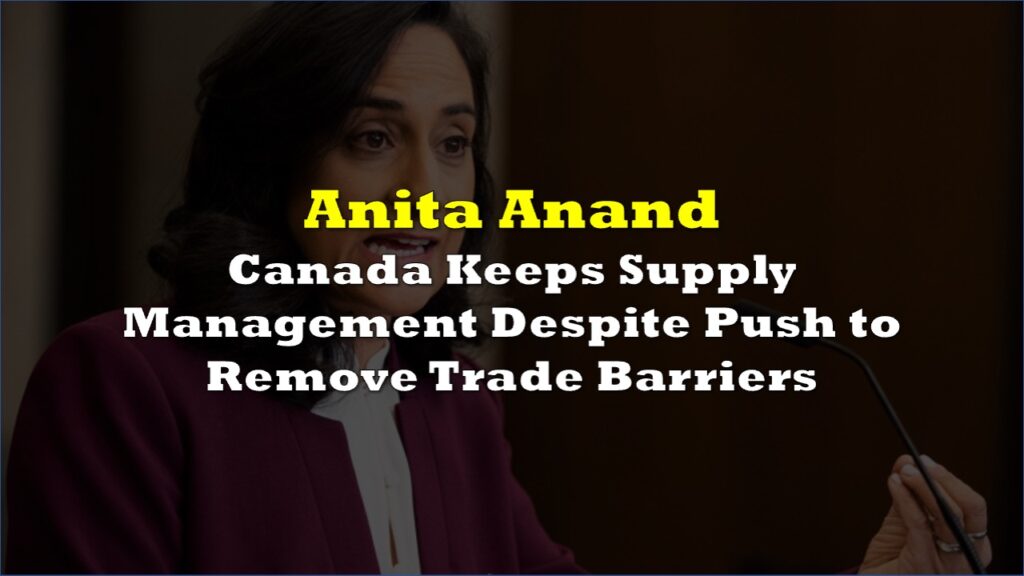A political science professor warned last week that Canada’s supply management system could derail trade negotiations with the United States, calling the government’s commitment to the policy “economic suicide.”
Andrew Richter, a University of Windsor professor, argued in a National Post opinion piece that protecting supply management threatens prospects for a new comprehensive trade agreement between the two countries.
Richter cited supply management as a major obstacle during the 2017-18 NAFTA renegotiation under President Donald Trump’s first term. Trump has repeatedly criticized the system as unfair to American farmers and has ruled against it multiple times, Richter wrote.
The professor highlighted economic costs to Canadian consumers, citing studies showing the average Canadian family pays up to $600 more per year because of supply management policies. Lower-income citizens bear a disproportionate burden, he said.
Related: How Quebec’s Dairy Quotas Block Trade and Hurt Consumers—And Why Supply Management Must End
Despite these costs, supply management enjoys broad political support across party lines, with backing from groups including the Dairy Farmers of Canada and Egg Farmers of Canada, Richter noted. Most Canadian media outlets support the system, with only the National Post consistently offering criticism.
Richter questioned whether the political commitment justifies risking a potential trade deal. He described the situation as Canada potentially “committing economic suicide” by prioritizing the policy.
As Canada-US trade talks enter their final phase, Richter warned the outcome remains uncertain. He suggested Trump has made clear that major obstacles remain, with supply management chief among them.
Without dramatic changes to the supply management program, there may be no agreement unless Canada makes significant concessions, the professor argued.
Richter is an associate professor of political science at the University of Windsor.
Information for this story was found via the sources and companies mentioned. The author has no securities or affiliations related to the organizations discussed. Not a recommendation to buy or sell. Always do additional research and consult a professional before purchasing a security. The author holds no licenses.

